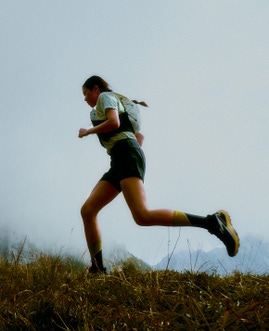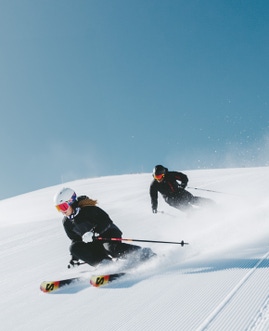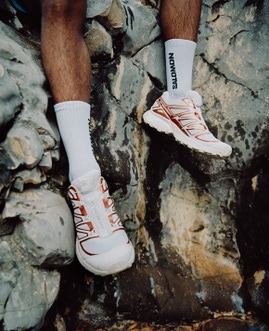We asked French trail running superstar Francois D’haene for advice on how to prepare for your first ultra marathon. Between training runs and harvesting grapes at his Beajoulais winery, the Salomon athlete answered a dozen questions and gave us his best tips. He wins…often…so if you plan on running an ultra, heed his advice.
For someone who wants to run an ultra-marathon, what distance of a race should they have already done to progress to an ultra?
It depends on your past experiences and training level. You will need to spend a few hours in the mountains and see how your body reacts on very long runs. Personally, for a 20-hour ultra, my longest trainings are 6-7 hours long; sometimes for a few days in a row.
How big should the increase in running kms be to get to an ultra level?
The mileage doesn’t mean anything in the mountains. The amount of elevation gains and drops as well as the technical level of the trail can change everything. The time spent in the mountain is more significant and the intensity, which will vary, is key. We are all able to spend eight hours in the mountain by walking almost all the way. Then, after getting used to it, by running at a slow pace. This is where the progression will happen, in my opinion.
What is the longest you run in training to prepare for an ultra?
As I said, I’m not thinking in terms of mileage but in terms of time spent in the mountain, so maybe 10 to 12 hours for my longest training. But keep in mind it’s more profitable to have more trainings rather that longer trainings.
Do you train in bad weather on purpose to be ready for possible bad weather on race day?
Of course. With a job and kids, I have to adapt and take advantage of the free time I have. It helps dealing with your body in difficult conditions, but don’t forget to keep enjoying it and adapting.
How do you train for what you will eat and drink during a race? How do you simulate it?
I’m listening to what my body says. I validate experiences, keeping what works and discarding what doesn’t from my previous adventures. I’ve been trying to improve that for the past 12 years.
Should the first time ultra-distance runner have time goals for each section of the race?
Not at all! He or she has to envision the race in its entirety, listen to himself or herself, and take it easy to reach the finish line. Only then will he or she be able to see where they can improve and maybe set a goal.
Are there exercises someone can do to prepare for the mental challenges they will encounter?
Not for me. I try to understand why I want to take part in a race, to plan well and to choose my goals at the beginning of the season. According to that, I visualize my preparation and the motivation is growing slowly until the race.
Any advice on dealing with the down times during the race, when things seem bleak and overly difficult?
Keep things in perspective. Remember why you’re there, why you choose to be there. Keep telling yourself that it’s only a sport; that exhaustion/tiredness come and go. And don’t forget to have a laugh about your sorry state!
Do you break the race into smaller segments in order to keep it from seeming like a huge task?
Yes, I do. I split it in segments to deal with it more easily, but I never forget to envision it in its entirety. Otherwise you might get carried away on easy sections!
When you think back to your first ultra-race, what was the hardest part and how did you overcome that challenge?
I was afraid, obviously, and I started slowly with only one goal in mind: reach the finish line. Then, I had to deal with things that arise on long distances that I had no idea how to deal with: food, cramps, exhaustion, pains and rubbing.
How do use your training runs to prepare you for what you might need from an equipment standpoint during the race?
I keep what works and I always test new gear from Salomon ahead of a race. Trusting your gear is paramount. When I’m on the starting line of an ultra, I need to trust my gear and be certain it will perform. For that, I work a lot with the Salomon engineers on development, prototypes, customization and materials. That’s everything from footwear to apparel and the pack or vest I use. It’s a lot of work on a daily basis, but I learn a lot.
Most importantly, what is the best kind of wine to drink leading up to a race? Red or white?
I don’t make white wine, so I would say red. It’s important to spend a good time ahead of a race—the day before or days before—to put the finishing touches to your preparation, to tighten the bounds, the motivation, re-set your balance and switch to GOAL mode. I like to achieve that over a glass of good wine, but what’s important is that you take the time to do it!












